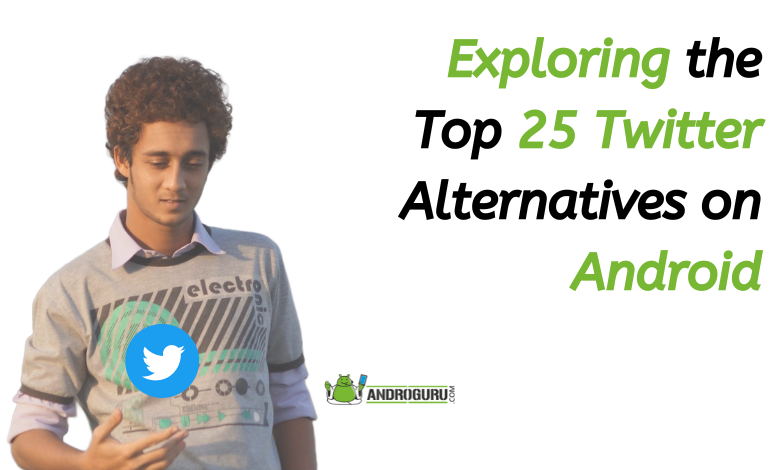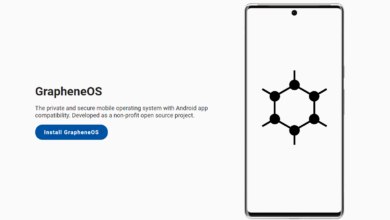Exploring the Top 25 Twitter Alternatives on Android
Stay connected, express yourself, and explore a world beyond Twitter with these 25 impressive Android alternatives.

In a world where social media has become an integral part of our lives, Twitter has long been a go-to platform for sharing thoughts, engaging with others, and staying updated on the latest trends.
Micro-blogging has undergone a remarkable transformation over the years, revolutionizing the way we communicate and share information.
As a personal take, I’ve witnessed the evolution of micro-blogging platforms and experienced firsthand the impact they have had on our digital landscape.
When micro-blogging first emerged, it was primarily characterized by platforms like Twitter, which limited users to 140 characters per post.
This constraint forced users to distill their thoughts into concise and succinct messages, encouraging brevity and creativity. It became a powerful tool for real-time updates, breaking news, and quick snippets of information.
As time went on, micro-blogging platforms began to expand their character limits, allowing for more expressive and detailed posts.
This shift enabled users to share longer thoughts, engage in deeper discussions, and provide more context to their messages. The increase in character limits also opened doors for content creators, who could now share their ideas and stories with a broader audience.
Furthermore, the introduction of multimedia elements such as photos, videos, and GIFs transformed micro-blogging into a visually immersive experience.
Users could now enhance their messages with visual content, making their posts more engaging and captivating. This shift not only enriched the user experience but also enabled micro-blogging platforms to become vibrant hubs of creativity and self-expression.
Another significant development in the micro-blogging landscape was the rise of threaded conversations.
Platforms started implementing features that allowed users to respond directly to specific tweets or posts, creating interconnected conversations. This facilitated meaningful discussions, encouraged collaboration, and helped foster a sense of community within micro-blogging platforms.
Additionally, micro-blogging played a crucial role in shaping the landscape of online activism and social movements.
It provided a platform for marginalized voices to be heard, as well as a catalyst for mobilization and awareness-raising. Hashtags became powerful tools for organizing movements, raising awareness about important causes, and driving conversations on a global scale.
From a personal standpoint, micro-blogging has empowered me to share my thoughts, connect with like-minded individuals, and engage in meaningful conversations.
It has allowed me to stay informed about the latest news, trends, and developments in various fields. Moreover, it has provided a platform to showcase my creativity, share my passions, and build a network of diverse individuals.
However, with the ever-evolving digital landscape, users are seeking fresh alternatives to diversify their social media experience.
Whether you’re looking for enhanced features, niche communities, or a change of pace, I have curated a list of the 25 best Twitter alternatives for Android users.
- Mastodon: Mastodon is a decentralized social network that emphasizes user privacy. It allows users to join different communities, known as instances, based on their interests and preferences. With its federated structure, Mastodon offers a refreshing take on social media, giving users more control over their data and interactions.
- MeWe: MeWe is a privacy-focused platform that aims to provide users with a safe and ad-free social networking experience. It offers features such as private messaging, group chats, and customizable profiles. MeWe puts user privacy at the forefront and ensures that users have control over their data.
- Gab: Gab is a platform that emphasizes free speech and unrestricted conversation. It aims to create an environment where users can express their opinions without fear of censorship. Gab offers a wide range of features, including groups, private messaging, and customizable profiles.
- Minds: Minds is a unique social media platform that rewards user engagement. Users can earn tokens by actively participating on the platform, which can be exchanged for various benefits. Minds also focuses on user privacy and allows users to control their data.
- Parler: Parler gained popularity as a platform that champions free speech. It aims to create an unbiased environment where users can express their views openly. Parler offers features such as public posts, private messaging, and customizable profiles.
- Vero: Vero stands out with its emphasis on connecting users based on their interests and passions. Users can share content, recommendations, and moments with a selective audience. Vero aims to create a more genuine and authentic social networking experience.
- Diaspora: Diaspora is a decentralized social network that gives users control over their data and connections. It offers a range of features similar to traditional social media platforms, but with the added benefit of data ownership and privacy.
- Ello: Ello is a platform that focuses on the creative community, particularly artists and creators. It provides a minimalist and ad-free space where users can showcase their work, connect with like-minded individuals, and explore artistic content.
- Steemit: Steemit is a blockchain-based platform where users can earn rewards for their content contributions. It offers a unique way for creators to monetize their content and engage with a community that values their contributions.
- Sola: Sola provides an AI-curated social media experience. The platform uses algorithms to personalize content for users, ensuring they receive relevant and engaging posts. Sola aims to create a more tailored and enjoyable social networking experience.
- Plurk: Plurk is a microblogging platform that emphasizes conversation and interaction among users. It offers real-time interaction, customizable profiles, and a unique karma system that rewards active participation.
- Amino: Amino is a platform that hosts a wide range of vibrant communities focused on specific interests and hobbies. Users can join communities, engage in discussions, and share content related to their passions.
- Minds: Similar to the earlier mention, Minds is a platform that champions freedom of speech and provides a space for open discussion. It offers features such as public posts, private messaging, and the ability to earn rewards for engagement.
- Friendica: Friendica is a platform that allows users to connect with others across various social media platforms. It provides a unified experience by aggregating content from different networks, allowing users to stay connected with friends from different platforms.
- Twister: Twister is a decentralized microblogging platform that prioritizes privacy and censorship resistance. It uses peer-to-peer technology to ensure that users have control over their data and communications.
- Pillowfort: Pillowfort is a creative and supportive blogging community that revolves around various topics. It offers a safe and inclusive space where users can share their thoughts, art, and interests with like-minded individuals.
- Woddal: Woddal is a social networking platform that focuses on user privacy and data protection. It offers features such as customizable profiles, groups, and private messaging while prioritizing user privacy.
- Pleroma: Pleroma is a federated social networking platform that aims to provide an alternative to traditional social media. It allows users to create their own instances and communicate with other users across different instances.
- Nitter: Nitter is a privacy-focused alternative to Twitter specifically designed for browsing tweets. It provides a stripped-down, ad-free interface for users who prefer a lightweight and privacy-oriented Twitter experience.
- Micro.blog: Micro.blog is a platform that encourages users to share long-form content and engage in meaningful conversations. It prioritizes user control and ownership of content, allowing users to publish their thoughts and connect with others.
- GNU social: GNU social is a decentralized social networking platform that follows the principles of free software and open standards. It allows users to connect with others on different instances while maintaining control over their data.
- SocialHome: SocialHome is a decentralized social networking platform that focuses on privacy, user control, and data ownership. It allows users to create their own pods, connect with others, and share content within their trusted network.
- Misskey: Misskey is a decentralized and open-source platform that emphasizes user control and privacy. It offers a range of features including private messaging, customizable profiles, and the ability to create communities.
- Fosstodon: Fosstodon is a social networking platform dedicated to the free and open-source software community. It provides a space for developers, enthusiasts, and advocates to connect, share ideas, and discuss open-source projects.
- Mastalab: Mastalab is a feature-rich client for Mastodon, the decentralized social network. It offers an intuitive interface, advanced filtering options, and customization features, providing users with a seamless Mastodon experience.
These 25 Twitter alternatives on Android offer users a variety of options to explore beyond the traditional social media landscape.
Whether it’s prioritizing user privacy, decentralized networks, or rewarding user engagement, these platforms cater to different preferences and interests. Users can choose the platform that aligns with their values and preferences, and enjoy a fresh and personalized social media experience.













